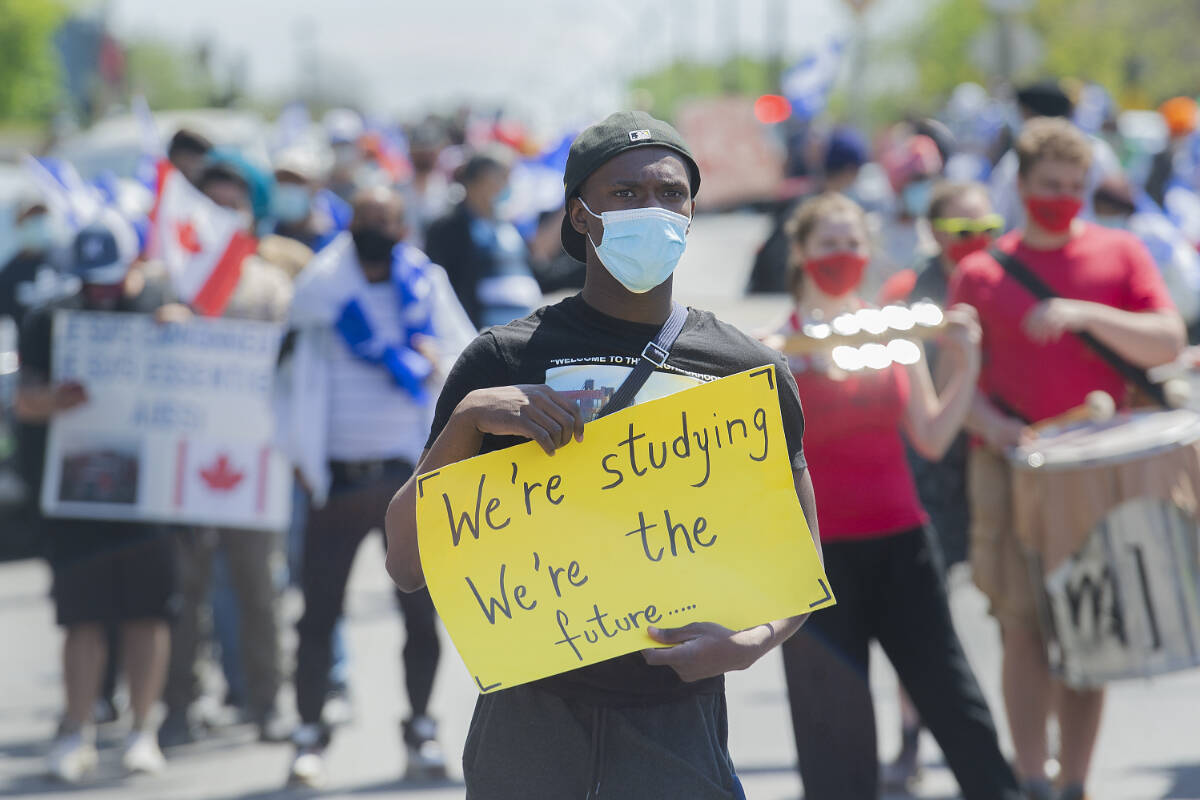The federal government announced last Friday (April 22) that recent international post-secondary graduates will be able to stay and work in Canada for a little longer.
The changes will allow recent graduates with post-graduation work permits expiring between Jan. 31, 2022, and Dec. 31, 2022, will qualify for an additional open work permit of up to 18 months. The federal government said they are exploring a “simplified, expedited process” for the new permits and will be revealing details in the coming weeks.
While the change is welcome news for 50,000 international graduates who would have been deported otherwise, advocates say it doesn’t go far enough to support international students.
Migrant Students United, a part of the Migrant Workers Alliance for Change — a Canadian advocacy group supporting migrant workers — said the change leaves out thousands of recent graduates whose permits expired between Nov. 27, 2021, and Jan. 31, 2022.
“This is a small step in the right direction, but too many remain without rights, we need permanent resident status for all, now, especially those in low-waged work; we need a permanently renewable post-graduate work permit, not a one-off program, and the current announcement needs to include those left out,” said Migrant Students United coordinator, Sarom Rho.
Gaining work experience through post-graduation work permits is vital for international students looking to become permanent residents in Canada, as any experience gained through part-time work, entrepreneurship or work placement opportunities does not count toward their permanent residency under Canada’s Express Entry program.
Saad Shoaib, vice chair of the Alma Mater Society of UBC, said there needs to be more accessible ways for international students to obtain work permits and succeed in Canada.
“Around 50 per cent of international students work full-time or part-time. We see that international students are contributing to the economy, but we’re not seeing the federal government allow them to count their work experience while they’re in university.”
Shoaib said he’s hopeful the federal government will make changes to allow part-time work experience gained while studying to count toward permanent residency, but no such changes have been made yet.
International students also face barriers to accessing student employment programs like Canada Summer Jobs and the Youth Employment and Skills Strategy. Shoaib said the federal government should carve out specialized skill categories for international students to gain employment experience under those programs.
“Ensuring that our international students are well-supported should be a key principle for our post-secondary education system here in Canada. Our main focus is to create a gold-standard post-secondary education system that attracts talent from across the world.”
The federal government said 157,000 former students became permanent residents in 2021, with more than 88,000 of them transitioning directly from a post-graduation work permit to permanent status.
@SchislerCole
cole.schisler@bpdigital.ca
Like us on Facebook and follow us on Twitter.

